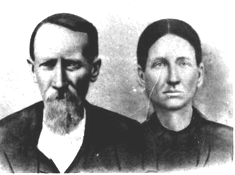New Manchester Civil War
New Manchester 1861-1864
Although several prominent New Manchester families professed Union sympathies, their sons did not always share their sentiments. Large numbers of New Manchester men enlisted in local companies and prepared to march off to war, even before the first shot was fired.
Like the mill at Roswell, New Manchester became a major contractor for the Confederacy during the Civil War, supplying an excellent grade of yarn and cotton cloth. As was true of most cotton and woolen factories, government authorities controlled production and profits. In order to keep their hands at the factory and out of the army, the New Manchester mill owners were forced to supply 2/3 of their production to the government, a very large part for which they received no consideration.
Atlanta Campaign
After Sherman's failed assaults on the Confederate forces at Kennesaw Mountain, he resumed his flanking strategy. In the meantime, Johnston abandoned the Kennesaw lines during the night of July 2 and retreated south to preconstructed trenches along the Chattahoochee known as the “River Line.”
Knowing that a direct assault on these Confederate defenses would be too costly, Sherman made plans for another flank attack. As part of this movement, he sent General Kenner Garrard and his 4000 troops east to Roswell. General George Stoneman’s cavalry was already operating on the left flank of the Confederate army, some ten miles distant in the vicinity of Sweetwater Creek.
July 1864 –New Manchester Civil War
With Federal troops closing in, Joshua Welch, factory superintendent of the cotton mill, left New Manchester with the company books and cash in hand. One of the mill managers was left in charge with instructions to work the mill to “the last extremity.” The Union army was not far behind. Cavalry troops under the command of Colonel Silas Adams arrived at the New Manchester mill just one week later on July 2nd.
Adam's men stopped production and ordered the workers out of the building. Soldiers entered the factory, pulled the belting out of the machinery and removed the cloth and thread from the looms and spindles, but there appeared to be no intent to burn the mill. For seven days Adam’s men patrolled the area while the mill workers waited to see what would happen.
On July 9, Major Haviland Tompkins
and a detail of eight men rode out to New Manchester with orders to
destroy the large cotton factory on the banks of Sweetwater Creek and to
arrest the men, women, and children employed by the mill. After setting
fire to the factory, Tompkins assembled the workers at Ferguson’s
Bridge just upstream from the factory. Separating the men from the
women, Tompkins loaded them into empty supply wagons, but there was not
enough room for everyone and many began the sixteen-mile journey to
Marietta on foot.
It was a sad looking picture to see the women sitting in groups, along the road, with their little bundles in their hands.
Lt. Isaac Brown - Terre Haute Daily Express
Read more…. From New Manchester Civil War to Precious Cargo
As an Amazon Associate, we earn commissions from qualifying purchases on Amazon.com at no cost to you. Purchases of qualifying products from other affiliates generated by links on this site, may result in additional sources of affiliate commission.
 Sweetwater Factory Mill Ruins
Sweetwater Factory Mill Ruins Walter & Charlotte Stewart
Walter & Charlotte StewartNew Manchester Mill Boss
 Synthia Stewart, daughter of Walter Stewart. The family returned to Georgia after the war, and Synthia recorded her version of the events when she was 92.
Synthia Stewart, daughter of Walter Stewart. The family returned to Georgia after the war, and Synthia recorded her version of the events when she was 92.